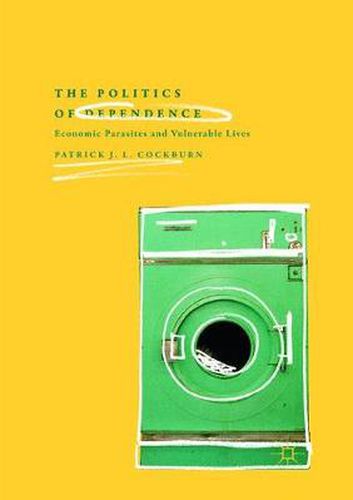Readings Newsletter
Become a Readings Member to make your shopping experience even easier.
Sign in or sign up for free!
You’re not far away from qualifying for FREE standard shipping within Australia
You’ve qualified for FREE standard shipping within Australia
The cart is loading…






This title is printed to order. This book may have been self-published. If so, we cannot guarantee the quality of the content. In the main most books will have gone through the editing process however some may not. We therefore suggest that you be aware of this before ordering this book. If in doubt check either the author or publisher’s details as we are unable to accept any returns unless they are faulty. Please contact us if you have any questions.
The central claim of this book is that the dichotomy between economic dependence and economic independence is completely inadequate for describing the political challenges faced by contemporary capitalist welfare states. The simplistic contrast between markets and states as sources of income renders invisible the relations of dependence established in our basic economic institutions such as the family, property, and money. This book is a work of political theory that attacks narrow conceptions of dependence and identifies distinct senses of dependence that might allow political communities to make clearer decisions about the justice of our economic institutions and practices. Inheritance, for example, is as much a form of dependence as support by a welfare state, but these are never compared in debates about economic justice. This book begins the work of comparing forms of economic dependence, and argues that economic dependence is always an issue of both vulnerability and parasitism. It builds bridges between political theory and social science, and is of relevance to those concerned with social and economic justice in and beyond contemporary capitalist welfare states.
$9.00 standard shipping within Australia
FREE standard shipping within Australia for orders over $100.00
Express & International shipping calculated at checkout
This title is printed to order. This book may have been self-published. If so, we cannot guarantee the quality of the content. In the main most books will have gone through the editing process however some may not. We therefore suggest that you be aware of this before ordering this book. If in doubt check either the author or publisher’s details as we are unable to accept any returns unless they are faulty. Please contact us if you have any questions.
The central claim of this book is that the dichotomy between economic dependence and economic independence is completely inadequate for describing the political challenges faced by contemporary capitalist welfare states. The simplistic contrast between markets and states as sources of income renders invisible the relations of dependence established in our basic economic institutions such as the family, property, and money. This book is a work of political theory that attacks narrow conceptions of dependence and identifies distinct senses of dependence that might allow political communities to make clearer decisions about the justice of our economic institutions and practices. Inheritance, for example, is as much a form of dependence as support by a welfare state, but these are never compared in debates about economic justice. This book begins the work of comparing forms of economic dependence, and argues that economic dependence is always an issue of both vulnerability and parasitism. It builds bridges between political theory and social science, and is of relevance to those concerned with social and economic justice in and beyond contemporary capitalist welfare states.